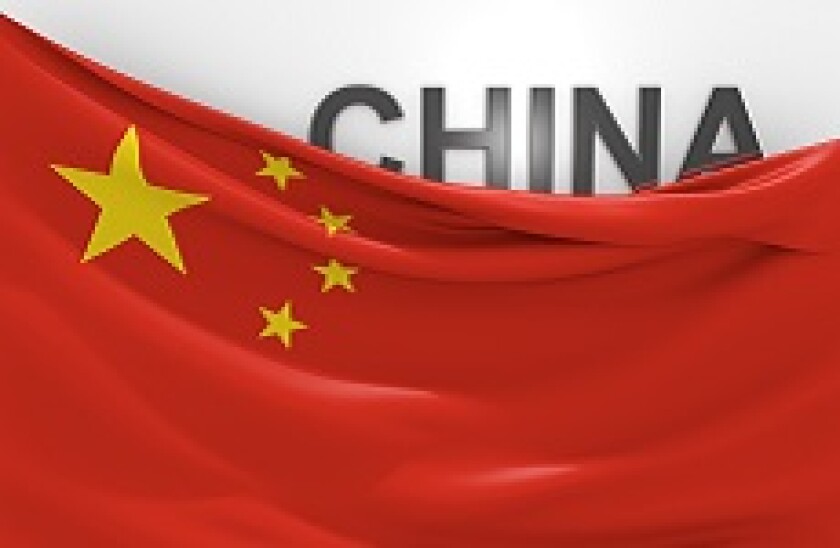China’s industrial profit growth declined further to 4.4% year-on-year in August, after standing at 4.8% in July, according to a Monday statement from the National Bureau of Statistics.
Retail sales grew 7.5% year-on-year in August compared with 7.6% in July, affected mainly by a contraction of 8.1% in auto sales.
For the first eight months this year, year-on-year growth in fixed asset investments slowed to 5.5%.
*
China said it would cancel additional tariffs on imports of soybeans and pork that it intends to buy, according to China Central Television, the nation’s official broadcaster. The state media did not disclose the amounts that will be purchased.
The Chinese Ministry of Commerce published two lists of products that will be exempted from the retaliatory tariffs last Wednesday. Soybeans and agricultural products were not on those two lists.
“Although the purchase has swung back and forth for a few rounds in the past one year, the latest announcement by China is a good gesture setting a positive tone for the upcoming trade talk in early October,” Dongming Xie, head of greater China research at OCBC Bank, wrote in a Monday note. “We think the purchase of US pork is a good move as it may help alleviate the higher inflationary pressure from the supply side driven pork inflation.”
*
Days after Hong Kong Exchanges and Clearing (HKEX) offered to purchase the London Stock Exchange (LSE) for $36.6bn, the latter rejected the offer in a strongly worded letter.
LSE’s board of directors unanimously rejected the proposal and saw “no merit in further engagement,” said the letter.
In the letter addressed to the chairman and chief executive of the Hong Kong bourse, LSE’s chairman Don Robert stated his reasons for the decision. Notably, he mentioned the cherished connection with the Shanghai Stock Exchange as a strategic partner.
“We recognise the scale of the opportunity in China and value greatly our relationships there,” the letter read. “However, we do not believe HKEX provides us with the best long-term positioning in Asia or the best listing/trading platform for China. We value our mutually beneficial partnership with the Shanghai Stock Exchange which is our preferred and direct channel to access the many opportunities with China.”
The HKEX responded in a Friday statement that it “had hoped to enter into a constructive dialogue” with the LSE’s board to discuss the various merits of its proposal, adding that it was “disappointed” that its London counterpart “declined to properly engage”.
“In particular, HKEX had hoped to demonstrate why it believes that the benefits of its proposal significantly outweigh those of the proposed acquisition of Refinitiv,” it added.
*
Standard Chartered published its monthly Renminbi Globalisation Index (RGI) — a measure of international renminbi usage — on Friday. The RGI modestly declined to 1,948 in July from 1,951 in June, but it is still the second-highest reading since April 2016.
The trade war, economic slowdown, and the weakness in onshore renminbi are the key drivers for the decline, according to the note.
“A rebound in FX volatility, and therefore turnover, could also support RGI in the short term,” Kelvin Lau, senior economist for Greater China at the bank, wrote. “However, a more sustainable driver of renminbi internationalisation in the medium to long term is northbound portfolio flows into onshore asset markets, which look strong amid more good news on the index inclusion front.”
*
Hong Kong’s protests continued into the fourth month. Protesters attacked more train stations and set some stations’ entrances on fire. Police used tear gas, water cannons and petrol bombs, while some radical protesters threw petrol bombs at the Hong Kong government headquarters.
The ongoing protests have taken a toll on the Hong Kong economy, with the tourism industry also struggling.
The numbers from the the Hong Kong International Airport show a bleak story. The airport handled 6m passengers in August — a 12.4% year-on-year decline — due to the political unrest, according to a press release on Sunday.
*
Ren Zhengfei, the chief executive of Huawei, told the Economist in an interview that he was ready to share the company's 5G technology.
For a one-time fee, buyers will be able to receive perpetual access to the company’s existing 5G patents, licenses and codes. Further, the buyer can modify the source code.

